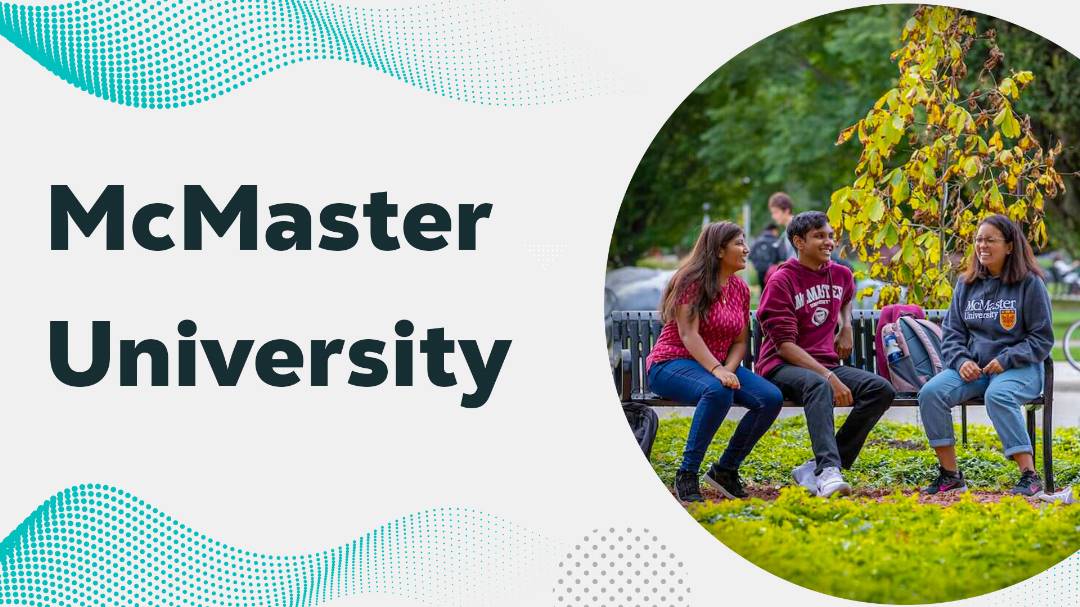
When you consider Canada as a destination for overseas education, the first question that comes to mind is, “What are the top 10 universities in Canada?” You may be fortunate to obtain a list on which you can rely, but does it state what distinguishes them from the others in order to be considered among the Top 10 universities? Stay tuned because the following article will help clear that doubt and provide you with a detailed explanation of why they are considered among the Top 10.
Let’s get right into the rankings.
- The University of Toronto, located in Toronto
Almost all official ranking platforms, such as Times Higher Education, QS top universities rankings, US News rankings, and so on, consider the University of Toronto the best university in Canada. UofT was founded in 1827; it ranks 18th in the whole world.
The University of Toronto has a strong reputation for innovation and research. Not only that, but 5 of Canada’s 23 Prime Ministers have graduated from UofT! Toronto is well-known for its lively atmosphere and a strong emphasis on arts and culture. UofT has consistently maintained its position as the best in Canada in engineering, business, and medicine fields.
- The University of British Columbia, Vancouver
Times Higher Education ranks the University of British Columbia (UBC) second in Canada and 34th in the world. Every year, UBC receives over $600 million in research funding. Furthermore, the researchers have collaborated with several other universities, industries, and the government on various projects and products. Since its inception in 1908, UBC has been regarded as one of the best universities in Canada and the world.
Professors, students, and staff have proven to be one of the best assets to the University and many industries, from immersive virtual reality simulations to attempting to break a speed record with engineering and physics.
- Montreal’s McGill University
Quebec is a state where most people communicate in French, and McGill University is one of only three universities in Quebec that offers coursework in English. McGill University is ranked third in Canada and 42nd worldwide for its world-class educational and research opportunities.
William Shatner (actor), Dr. Brenda Milner (neuropsychologist), Leonard Cohen (singer/songwriter), and Dr. Joanne Liu (International President of Doctors Without Borders) are among the notable alumni who have graduated and made their mark in various industries! Their classes are highly focused and informative, with international students from over 150 countries coming from a student-faculty ratio of less than 13:1.
- McMaster University, Hamilton

McMaster University is ranked fourth in Canada and 72nd worldwide. McMaster has a proud tradition of academic and research excellence, as evidenced by the achievements of the best and brightest among its ranks, which include three Nobel Prize winners, global business leaders, technological innovators, prominent politicians, public intellectuals, philanthropists, and performers.
Even with the recent COVID – 19 scenario, McMaster University engineers are pivoting 3D cell printing technology to aid in COVID-19 research, demonstrating their university’s current with such strong research capabilities. It is unquestionably one of the universities to investigate!
- University of Montreal, Montreal
The University of Montreal is a leading research university in Canada, ranking 5th in overall education in Canada and 85th in the world. It is a French-language public research university with a strong emphasis on French. The University of Montreal has some fantastic College Affiliations, such as Polytechnique Montreal (engineering) and HEC Montreal (business).
A team of researchers from the University of Montreal is also working on a device that will reduce the response time for detecting COVID – 19. With such a strong research front line, they are, without a doubt Canada’s leading research university.
- University of Alberta, Edmonton
Alberta University is ranked sixth in Canada. The University of Alberta, founded in 1908 in Edmonton, Alberta’s capital, is a public research university in Canada located on the banks of the North Saskatchewan River. “By the time the Government of Canada announced $26.8 million for research into COVID-19, University of Alberta teams had 17 project proposals ready to go, three of which were immediately funded by the Canadian Institutes of Health Research,” the University of Alberta responded during the pandemic outbreak (CIHR).
Others were ready to start working as soon as more funding became available.” It’s difficult to say no to such a beautiful campus and pleasant weather conditions, which are uncommon in Canada.
- The University of Ottawa
The largest bilingual (French and English) university in the world is the University of Ottawa. The seventh-best in Canada. Since 2012, both industry revenue and citations have increased, demonstrating the university’s consistency. Additionally, a university virologist recently enlisted in the National Strike Force to combat the COVID-19 outbreak. The University of Ottawa is a part of the U15, a group of Canadian universities with a focus on research, which contributes to their elite status and strong research capabilities.
- University of Calgary, Calgary
The University of Calgary is tied with the University of Waterloo for 8th position in Canada. Calgary is known for many things, including the Canadian Pacific Railway Headquarters, but most importantly, it is home to the University. The university has a very broad outlook, and its administrators predict that it will rank among the top 5 research universities by the year 2022. Over 125 different nations send students to the University of Calgary, demonstrating its reputation not only in Canada but also internationally.
- University of Waterloo, Waterloo
One of the most well-known universities among international students, particularly Indian students, is the University of Waterloo. The University is situated in Canada’s technological epicenter. Therefore, if you’re a student who enjoys technology and wants to work in the industry. This is the institution to attend! In the QS Graduate Employability Ranking of 2019 for connections between students and employers, the University of Waterloo is ranked first! It’s amazing, isn’t it? This is the institution to attend if you are a techie.
- Western University, London
Before you think about it, yes, there is a city in Canada named London! Western University is among the top 1% of universities worldwide. Recognized for its outstanding academic offerings and outstanding student experiences. The campus is lively and has many different research areas, including imaging, neuroscience/brain & mind, philosophy of science, etc. Western University has one of the best campuses in Canada which has everything from Tall Trees to Beautiful Architecture!
So! How do you feel? Do you fit anywhere? No question these Universities are the top 10 universities in Canada. however, all the universities have their own potential in a particular subject whether it is the University of Waterloo for Technology or the University of Montreal for amazing affiliations. Which university best fits you is what matters.
Due to its extensive research capabilities and industrial elements, selecting Canada as your study abroad destination is one of the best decisions you will ever make! You can always refer to our Canada Country guide for more information about Canada and the advantages of studying there.
Best Universities in Canada

Some of the world’s best universities are located in Canada. According to Times Higher Education’s World University Rankings 2023, 31 Canadian institutions are ranked among the best in the world.
With seven universities in the top 200, Canada provides plenty of opportunities for international students to receive a world-class education.
Canada can also offer lower tuition fees, simpler application processes, and more opportunities for permanent residency after graduation when compared to the United States.
The University of Toronto and the University of British Columbia rank particularly high in terms of research impact, indicating that these schools produce high-quality academic work that is widely respected.
Many Canadian universities are well-known for fostering a global perspective by attracting international students and faculty and encouraging global citizenship.
DISCOVER PROGRAM YOU CAN APPLY
every course you find will give you a pathway to post study visa
Best Universities in Canada according to International Rankings
Universities
| Times Higher Education Ranking (2022)
| Shanghai Jiao Tong University Ranking (2022)
| TopUniversities Ranking (2022)
| U.S. News & World Report Ranking (2021)
|
18 | 22 | 26 | 17 | |
37 | 44 | 46 | 31 | |
44 | 73 | 27 | 51 | |
80 | 90 | 140 | 133 | |
88 | 101 | 111 | 140 | |
125 | 92 | 126 | 138 | |
162 | 201 | 230 | 192 | |
201 | 301 | 298 | 306 | |
201 | 151 | 149 | 210 | |
201 | 201 | 170 | 287 |
Canadian universities without IELTS
For admission to their academic programs, most English-speaking institutions require IELTS, TOEFL, or PTE scores. There are, however, several universities in Canada that accept international students without IELTS scores and have their own criteria for assessing English proficiency. Do you want to study at the best universities in Canada without having to take the IELTS?
It is possible to gain admission to Canadian universities without IELTS scores. We will walk you through the entire process of studying in Canada without taking the IELTS. But first, let us look at the reasons why people fail the IELTS.
The English language proficiency of candidates seeking admission to Canadian universities is assessed using a variety of factors. If you meet the alternative language proficiency requirements specified by your chosen university, you can study in Canada without taking IELTS. Many Canadian universities also require candidates to submit a Letter of Recommendation (LOR) from any previous academic institution.
Additionally, several international students from specific nationalities are exempt from providing English language proficiency scores.
Furthermore, Canadian educational institutions readily accept English language proficiency tests other than IELTS during admissions.
Alternatives to IELTS for Studying in Canada
If you are unable to provide IELTS scores when applying for admission to Canadian universities, you have several options. Here are the best alternatives recommended by universities for students who want to study in Canada but do not have IELTS:
You may also submit results from other English proficiency tests, such as the TOEFL, Duolingo English Test, and PTE.
As an alternative to English proficiency scores, you can submit proof that you have studied in an English medium school for at least four years.
Candidates from English-speaking countries are exempt from providing IELTS scores in Canada as well.
For those who are unable to provide English proficiency scores, the university offers an English language course.
Canadian universities for international students

Canada has become a thriving hub for international students who want to stay in the country where they finish their studies. Canada is no longer an overlooked global destination for obtaining a degree; it also provides a direct path to permanent citizenship, which many international students seek. For over two decades, Canada has been ranked as one of the world’s top ten places to live, and it has a world-class education system.
Canada is becoming an increasingly popular option for students looking for a less expensive alternative to studying abroad than they might find in the United States. Canadian universities are now offering degrees that are as prestigious as those provided in the United States, often at a lower cost.
Canadians place a high value on education, and educational standards in Canada are uniformly high. Canada has nearly 100 universities, five of which are ranked among the top 100 in the world: the University of Toronto, McGill University, the University of British Columbia, Université de Montréal, and the University of Alberta.
Canadian universities tuition
Universities in Canada set their own fees, which vary depending on a number of factors, including the program you’re studying, whether you’re an international or domestic student, and whether you’re studying at the undergraduate or postgraduate level. According to Statistics Canada’s most recent report, tuition fees in Canada fell by an average of 5.3 percent for domestic undergraduate students and rose by 7.6 percent for international undergraduates in 2019/2020.
If you are a Canadian citizen studying in Canada. In that case, an undergraduate degree will cost you an average of CA$6,463 per year, and a graduate degree will cost you an average of CA$7,056 per year.
Canadian undergraduate tuition fees
According to Statistics Canada, the average tuition fee for international undergraduate students in 2019/20 is CA$29714 (US$22,500). Humanities courses are typically the least expensive (costing an average of $5,542), whereas engineering and medicine are among the most expensive (costing an average of CA$21,717 (US$16,446) for dentistry and $14,162 (US$10,724) for medicine). Business and management courses have lower annual fees than the national average, at CA$6,827 (US$5,170).
Canada’s postgraduate tuition fees
Tuition fees for postgraduate studies are generally lower, though this varies depending on your program. According to Statistics Canada, the average postgraduate tuition fee for international students in 2019/20 is CA$17,744, which is approximately US$13,437, a 4% increase from the previous year.
Executive MBA programs are generally the most expensive, averaging around CA$56,328 (US$42,657) on average, while regular MBAs cost CA$27,397 (US$20,747) on average. (You can learn more about MBA programs in Canada here.)
Concluding Remarks
Canada is a popular study destination for students due to its prestigious universities, high-quality education system, study-and-work opportunities, and access to scholarships.
Perhaps this is why many students prefer to study in Canada rather than other developed countries.
But how do you get into a Canadian university and study the subjects you want? Starting this process without adequate preparation and knowledge will almost certainly result in poor results.
The experienced and dedicated team at Univly is ready to answer your questions and provide advice on studying in Canada.
FAQ
The following are the best courses to study in Canada for international students:
MBA
Business and Finance in Computer Science and IT
Engineering Administration
Biosciences in Agriculture
The University of Toronto is Canada's top university.
The top ten universities in Canada are listed above, according to popular ranking publishers.
When compared to other top study destinations around the world, Canada is the most affordable option for higher education.
There are numerous scholarships available for international students at the best colleges in Canada.